Facts About Living In Sweden That Are Out Of The Ordinary
Ever fancied moving to Sweden? Well, you might want to read this article first before making a fixed decision. There are so many factors about living in Sweden that you probably didn’t know about. For example, did you know that the Swedes don’t like small talk? The cost of living is rather on the expensive side, not to mention that you’ll need good quality socks! But don’t let that put you off. Sweden has many positive aspects that make it a wonderful place to live and work. For one, they’re a very eco-conscious nation, and they often enjoy 6-hour working days too! Just like with any country, there are advantages and disadvantages, but all in all, we consider Sweden a fantastic place to live. With its unique and individual customs, any amount of time spent in Sweden is sure to be an enlightening cultural experience.
The Patent Capital of the World
In terms of population size, Sweden is only the 15th largest in Europe. However, it is one of the leading countries when it comes to patents. Sweden is one of the top countries in the world for its number of issued patents.

As a nation, Sweden is big on digital technology and has patented many digital services and products. You might be unaware that Spotify was, in fact, founded in Sweden. We can also thank Sweden for many other products and services too, including oat milk, the three-point-seat belt, the walking frame, the pacemaker, and many more.
No Small Talk Please!
It’s not uncommon for you to catch a taxi in the UK or USA and end up in deep conversation with the driver. A conversation that might start with a simple “Hi, how are you?” or “Hi, what’s your name?” might lead to you finding out all about each other’s lives.

This kind of small talk isn’t appreciated in Sweden. The Swedes don’t like to be asked personal questions, especially by people they’ve only just met. The best thing to do is to politely get to what you want to say or know from them and avoid small talk.
Don’t Ask Personal Questions
In many countries around the globe, you’d get away with asking personal questions to somebody you’d only just met. In fact, it’s actually even encouraged! Asking about someone’s work or family life is a way of showing interest in that person, and therefore it is considered friendly and welcoming.
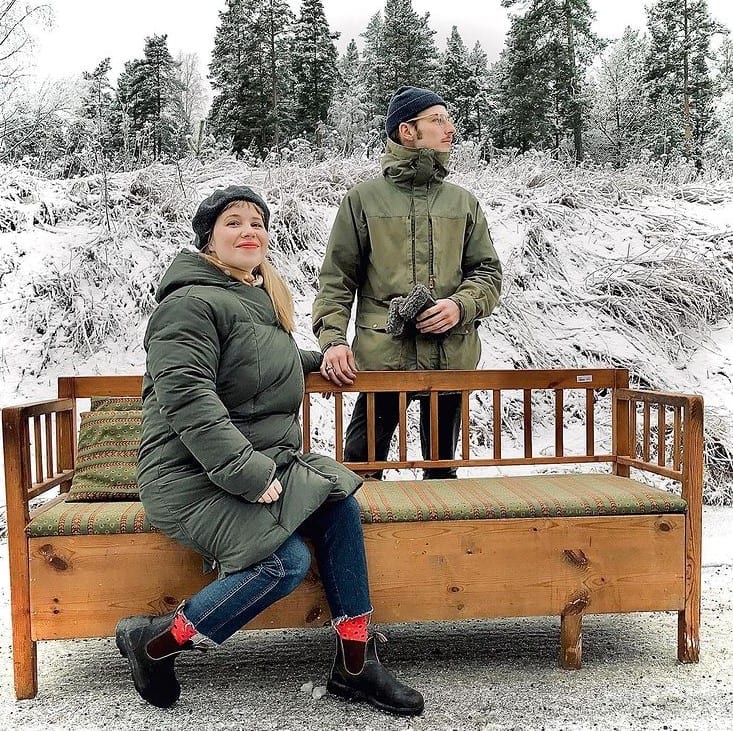
However, in Sweden, this kind of conversation is not openly welcomed. It’s considered rude in Sweden to ask people personal questions, especially if you don’t know each other that well. If a Swede feels that the conversation is steering towards personal territory, they will quickly change the topic.
No Social Class Hierarchy
In some countries, if you were in a large company, you’d be expected to address your managers and people in higher positions in an official manner. In Sweden, this is not the case. It doesn’t matter whether you are the lowest-paid member of the company or the highest earner; employees address each other by their first names only.
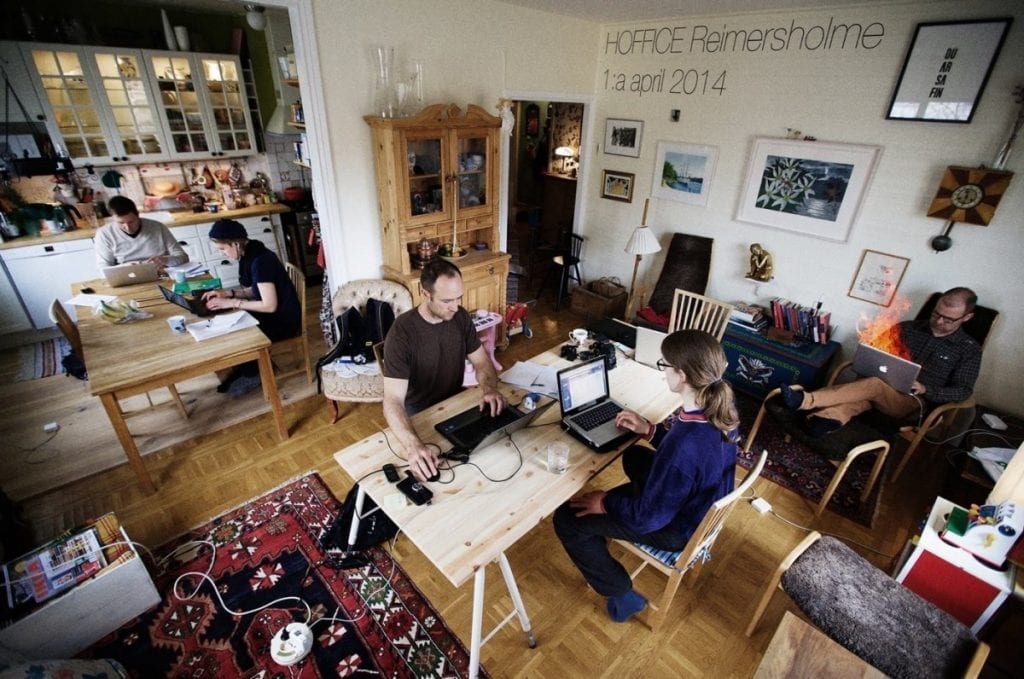
Rather than putting an emphasis on status and hierarchy, the Swedes are very people-orientated and strive to create a friendly and warm atmosphere, both in the workplace and in schools. Pupils also address their teachers by their first names too.
Apartment Rentals are Expensive!
If you think that you’ll save money and enjoy a cheaper cost of living in Sweden, then think again. The cost of living in Sweden is one of the highest in Europe and also impacts the price of apartment rentals and property prices.

Although salaries are higher in the capital, the cost of living is also higher. It might be difficult to find a reasonably priced apartment to buy or rent in the center, which is why many people choose to live in the suburbs of Stockholm. You get all the benefits, and the property prices are slightly lower.
An Eco-friendly Nation
In recent years, many countries worldwide have started to do their bit to become more eco-friendly and reduce their carbon footprint as a nation, but few are as green as Sweden. The Swedes are very environmentally-friendly, which is why Sweden is one of the most eco-conscious countries on the planet.

According to the Environmental Performance Index, Sweden is the fifth top country in the world. Their statistics are impressive! Just 1% of their trash goes to landfills, with 52% of all waste being used to produce energy and 47% of it is recycled. Sweden is so eco-friendly when it comes to handling waste that they even import trash from other countries to produce energy for many of its companies.
Sweden Prioritizes Moral Values
Good manners and moral values are not the most difficult qualities to convey, but unfortunately, these customs seem to have been forgotten in many parts of the world. In Sweden, people prioritize moral values. If only other countries could follow suit…

Interestingly, there are two daily life values that the Swedes prioritize above all else. The first is that people will own up to their mistakes immediately to not be called out as a liar later on – which the Swedes consider one of the worst labels to have. Secondly, it is rude to be persistent with offering someone food if they have declined your offer once.
People Rarely Carry Cash!
No matter whether you live in a cash-orientated country or in a place where consumers regularly whip out their cards or even their phones to pay for stuff, most people tend to carry both cash and cards on them. In Sweden, however, the locals rarely carry notes of coins on them.
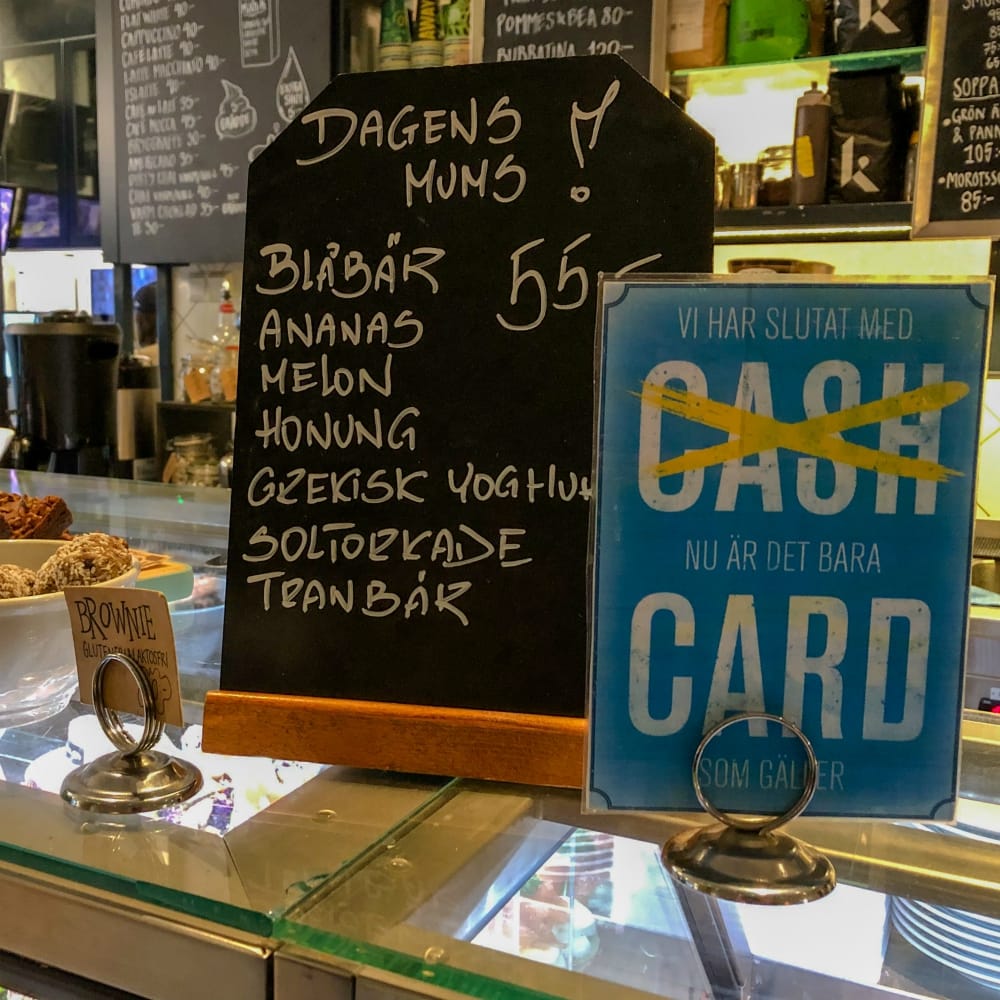
In Sweden, only some vending machines accept coins. The majority of businesses prefer to accept payments via debit or credit cards or phone payments. This is worth bearing in mind if you ever visit Sweden, as many stores and businesses don’t actually accept cash.
There are Special Butter Knives aka Smörkniv
Butter knives are not new to us. All of us have seen a butter knife before, and we’d imagine that most of us have them in our kitchens already. The type of butter knife you probably haven’t come across before is the Swedish butter knife, which is something else entirely.

The Swedes have their own type of butter knife, known as the Smörkniv. The Smörkniv is made from plastic or wood, rather than the metal butter knives we are most familiar with. Instead of everyone having their own butter knives, the whole table with share a Smörkniv. You must only use it if it’s your turn, you mustn’t leave it resting on your plate, and you shouldn’t cut your butter with any other knife.
Don’t Take the Last Cookie on the Table!
When it comes to the end of a meal, and you’re sharing a communal plate of something with others on your table, it is considered bad manners to automatically take the last cookie, for instance, on the plate. To save confusion, we’re going to use cookies as an example here.
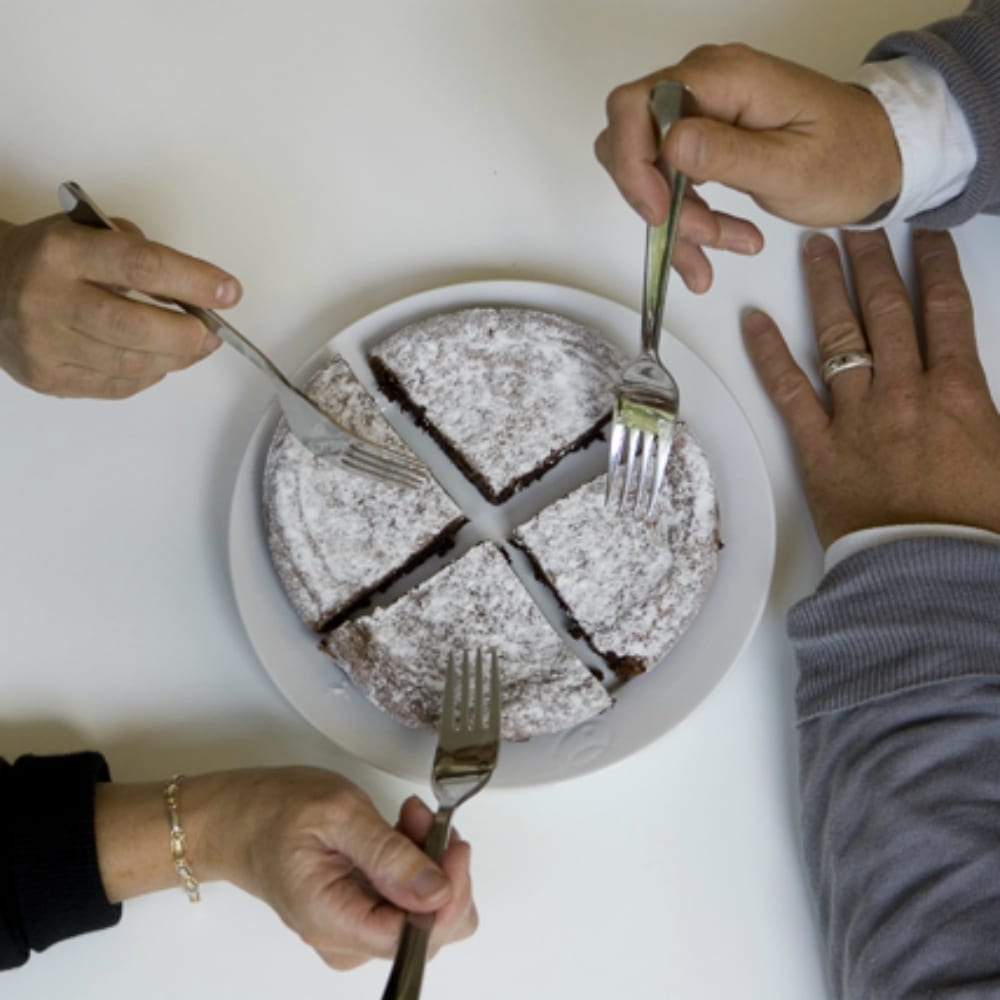
Swedish people are so polite that they don’t believe that they are automatically entitled to take the last piece of something. But treats don’t get wasted. Instead, you must wait for 15 minutes before asking the others at your table whether they would like the last cookie before you are allowed to take it.
You’ll Need Good Socks
If you ever get the chance to visit a Swedish person’s home, then you’ll need to have good socks. Not all countries expect you to take your shoes off upon entering your or somebody else’s home, but it is common custom and considered good manners in Sweden.
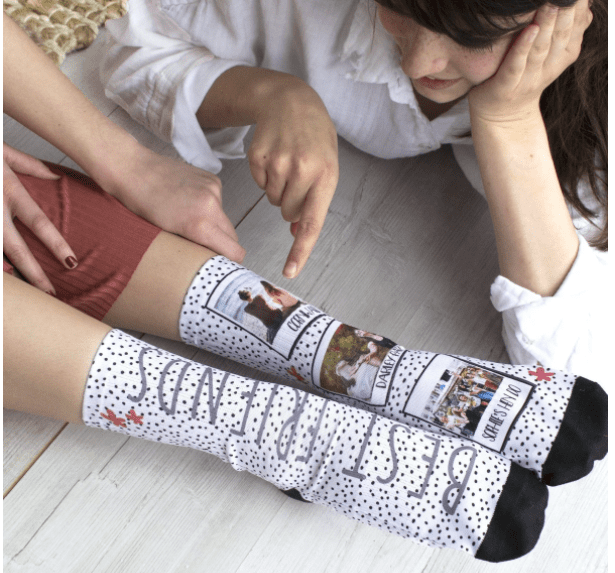
Instead of asking whether you should take your shoes off when entering someone else’s home, you should automatically remove your outdoor footwear. You then place your shoes under the coat rack, known in Sweden as sko hylla. With your socks often on display, the Swedes tend to have stylish socks, and they can even become the topic of conversation at a gathering.
Please Get to the Point When Talking About Something!
It’s interesting how our conversational styles differ so drastically between different countries. The Brits, for instance, are known to drag out their small talk so as not to come across as rude by abruptly ending a conversation. In Britain, it is considered rude to be too direct or abrupt.
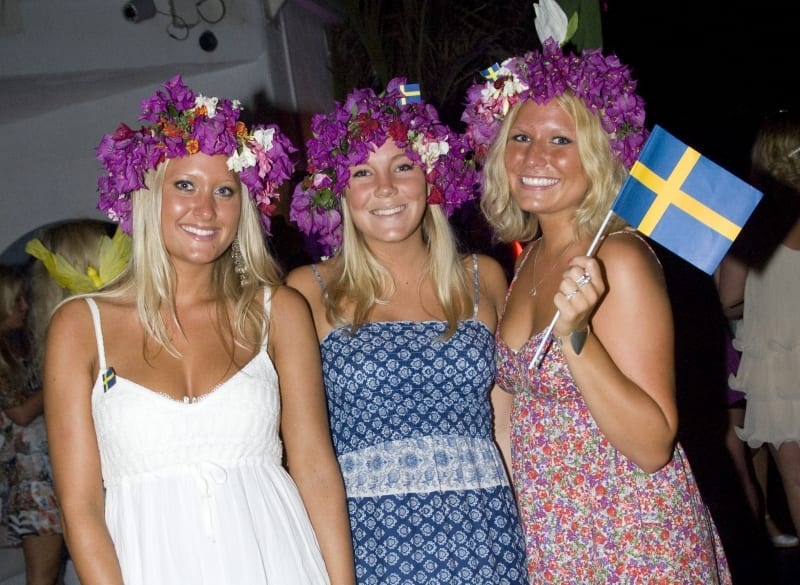
On the other hand, in Sweden, it is the opposite. The Swedes dislike personal questions and small talk, preferring to keep the conversation short and sweet. They’d much prefer you to get to the point of what you’re trying to say.
Making Friends Might Be Difficult Initially
With what we’ve learned until now about the Swedes’ disapproval of small talk and personal questions, it might come as no surprise that making friends in Sweden can be challenging initially. You can’t just go around asking people to go for coffee with you.

Asking the typical ice-breaker questions will not get you anywhere in Sweden and might even spoil your chances of making friends with the people you speak with. It takes time to become friends with Swedish nationals, as they don’t just let anybody into their lives. It will take patience and perseverance.
How to Make Swedish Friends
So how do you make friends with Swedish people? Most of us revert back to our conversational skills to break the ice but seeing as this won’t work in Sweden, how do you make Swedish friends? Well, the answer to this is hobbies!

The best way to meet people with the hope of establishing friendships is by picking up a new hobby. This way you will find like-minded people who enjoy the same things as you. Although there is a range of hobbies to enjoy in Sweden, the locals are particularly into anything fitness or health-related, so why not join the gym or an exercise class to get you started?
Swedes Don’t Respond Well to You Raising Your Voice
In Britain, for example, you can shout and swear at your friends in a light-hearted, joking kind of way. Obviously, this depends on the type of company you keep but generally speaking, the Brits don’t get overly offended at raised voices, and they’re not the only country to take this laidback approach.

Over in Sweden, however, the local Swedish people do take offense to raised voices! The Swedes have a reputation for being extremely soft-spoken, and even during an argument, they expect each side to speak calmly instead of shouting. Raising your voice, even if you’re just excited about something, is disapproved of.
Going to the Launderette is a Standard Way of Life
In places like the UK or the USA, launderettes are not so popular anymore. Most people have their own washing machines in their homes, which is a lot more convenient than lugging your laundry to a laundromat every time you need to wash your clothes and sheets. Swedes don’t prioritize buying washing machines for their homes. Most of the population live in apartments, which might be part of the issue.
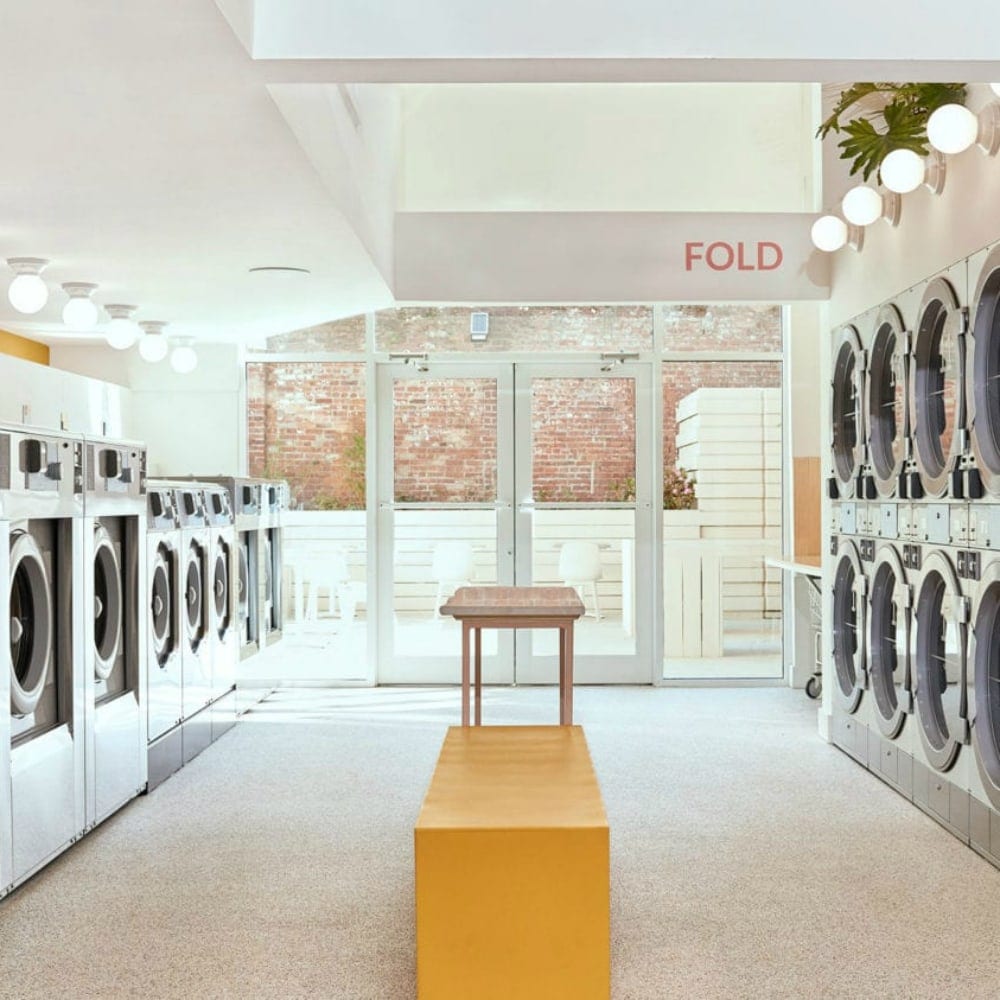
If you’re traveling around the country, you won’t meet many locals who have their own private washing machines. Launderettes are more popular in Sweden, and there are strict rules on using them too. You are expected to clean the washing machine after you use it to do your laundry!
Shorter Working Hours in the Summer
Despite Sweden being a modern, very forward-thinking nation, don’t expect them to work all around the clock! Unlike other advanced countries around the world, the Swedes believe in taking time out and working smarter, not harder, especially during the summer months.

Although Sweden attracts high volumes of international tourists during the summer months, most shops only operate until 5 pm and they are closed completely on Sundays. Throughout July and August, some shops actually close for this summer period, including many restaurants and cafes. This is because many Swedes travel during the summer months.
Everybody Loves Lingonberries
Lingonberries are a popular plant and berry in Sweden. Lingonberries are part of the heath family and are related to the blueberry and cranberry plants. The Swedes often use lingonberries to make homemade jam, which they use in a variety of their dishes.
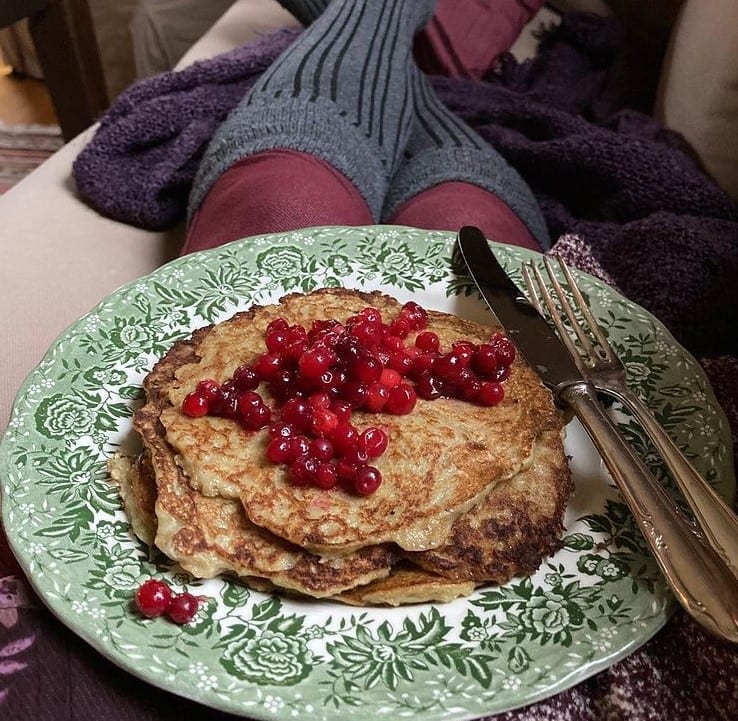
Making lingonberry jam is a kind of Swedish tradition, as many people pick their own berries that are then used to make the jam. You might see their lingonberry jam accompanying pancakes or even meatballs, yet strangely enough, they don’t spread jam on bread.
Respect Lines and Wait Your Turn
It can be frustrating having to wait your turn in a long line, but it’s something that we all have to do from time to time. What’s even more annoying is when people queue jump in order to get to the front of the line! This is not something that happens in Sweden.
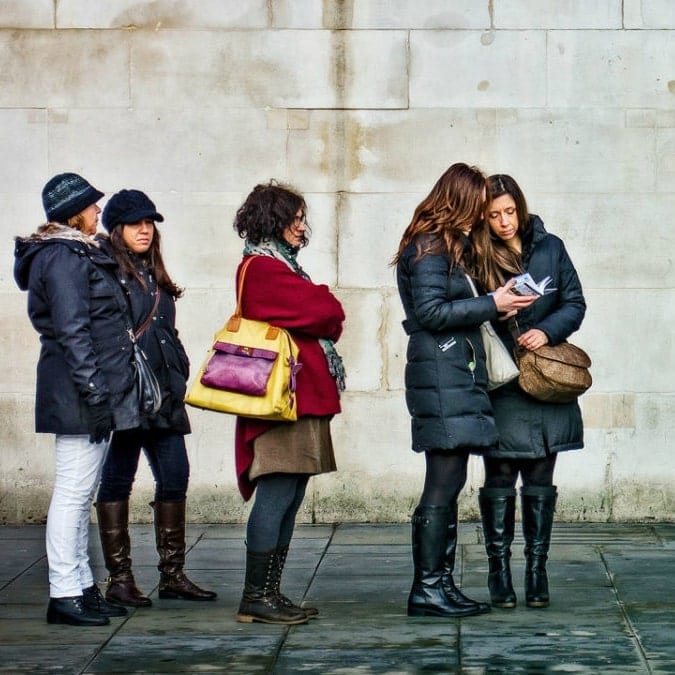
The Swedish nationals respect lines and know to wait their turn. There is no pushing or shoving as a long line starts to form. Instead, people are polite enough to wait patiently until their turn comes. Not only do the Swedes disapprove of anyone pushing in and not waiting their turn, they also frown upon people who complain about queuing.
The Swedes Love Sweets
Having a sweet-tooth isn’t just restricted to Sweden. Millions of people all around the world own up to having a sweet tooth. In Sweden, the locals tend to use Saturday as the day when they chill out and enjoy lots of sweet treats.

Saturday is the first day of the weekend and a national day of rest for Sweden, which is why they choose this day to relax and munch away on sweets. The habit even has a name, Lördagsgodis, which means Saturday sweets. The average family in Sweden gets through 1.2kg of sweets per week, with the majority of them consumed on a Saturday.
The Boss Wears Many Hats
Just like there’s no social class hierarchy in Swedish workplaces in terms of the way you address colleagues in senior positions, this extends to job roles too. The CEO isn’t afraid to get his hands dirty, so to speak, by turning their hands to any task that needs doing.

It’s not uncommon to see the boss at a company doing the jobs of manual workers. Everybody chips in and does whatever it is they have to do in order to get a task completed on time. You wouldn’t get this in many countries. Most CEOs won’t even make their own beverages!
The Swedes are Very Punctual
It can be incredibly frustrating when you find yourself constantly waiting around someone who has no concept of time. Even still, most of us often make jokes about that friend who is always late, and we tend to make light of the irritating but loveable habits of those around us.
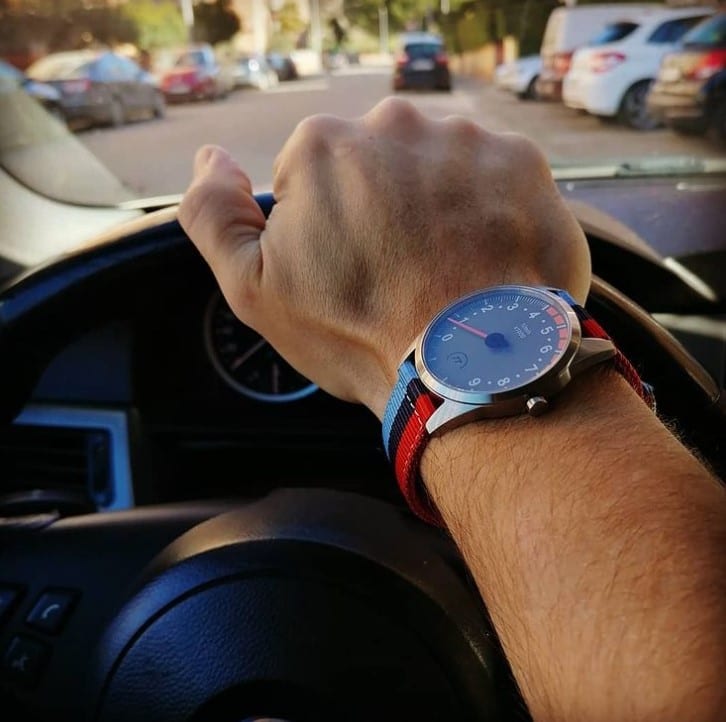
But if you’re the person who is always running late all the time, don’t expect the Swedish to be so forgiving! Punctuality is extremely important in Sweden, and people won’t be happy having to wait around for you. On the other hand, arriving too early isn’t welcome either because it might make the other party look as though they’re running late! Just arrive on time, basically!
They Love to Plan!
In recent years, we’ve seen how the world has become obsessed with planning. We don’t think there has ever been a time when there have been so many planners and organizational systems on the market! The Swedes love to plan too!
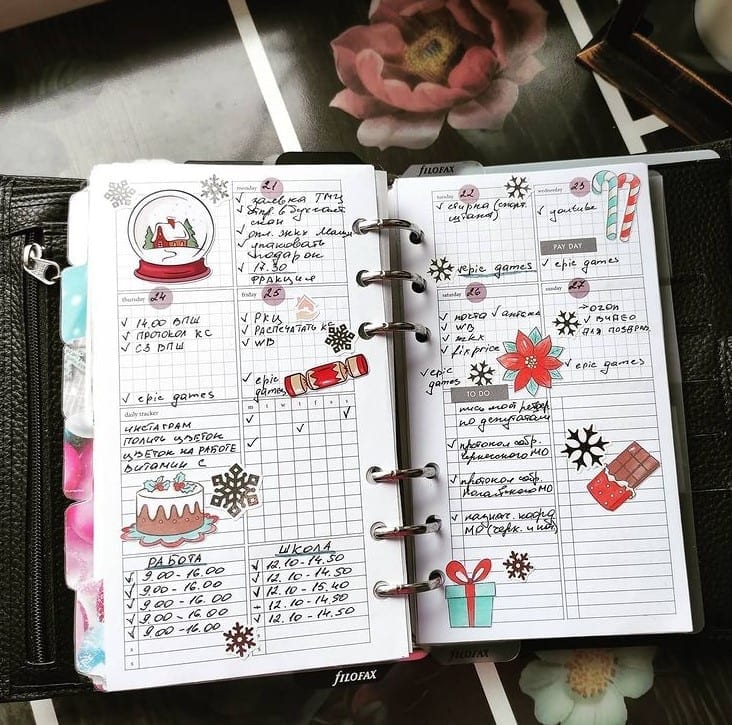
Planning and punctuality go hand in hand in Sweden. The Swedish will plan anything from traveling, work, and even social events. What’s even better is that they will even make their planning times social events by getting together with friends to plan together.
A 6-Hour Work Day
That almost sounds like a catchy title for a business or self-development book, doesn’t it?! There was a time when being successful in business meant skipping sleep and working endless hours. Now, there are new studies to suggest that we should be sleeping more and working fewer hours throughout the day.
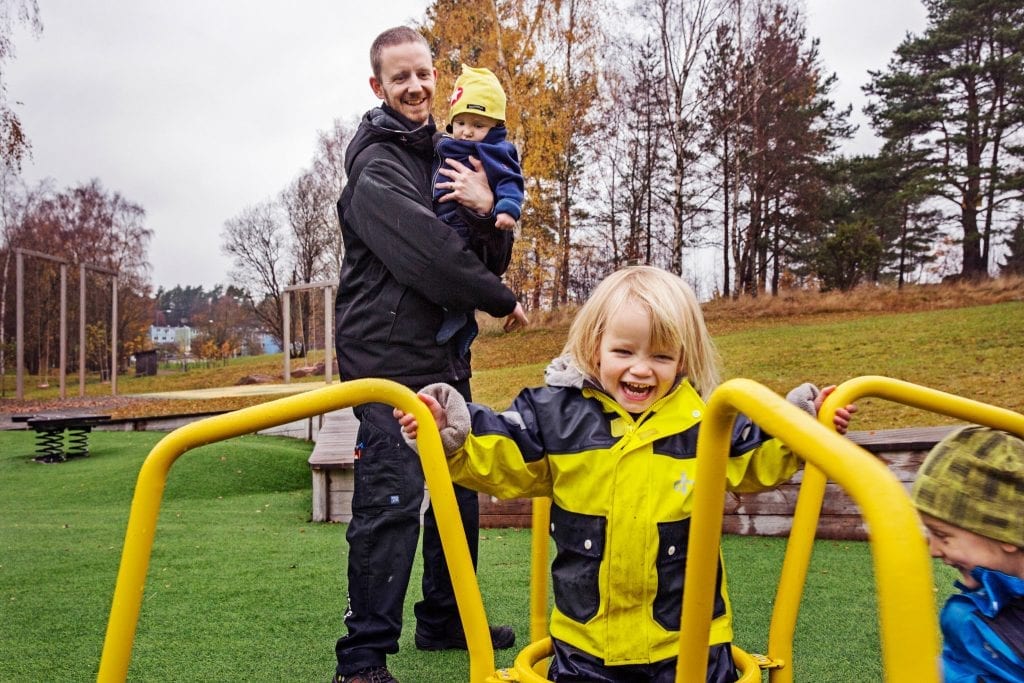
Sweden has gone as far as implementing these principles by making their workdays shorter. Research has shown that employees are only productive for 6 hours during the day, which is why some Swedish companies have shortened their working days.
480 Days of Parental Leave!
It’s tough for working parents when they want to take time off work to welcome their newborn child. Maternity leave and its terms for new mothers isn’t perhaps as good as what it could be; however, for new fathers, it is often worse.
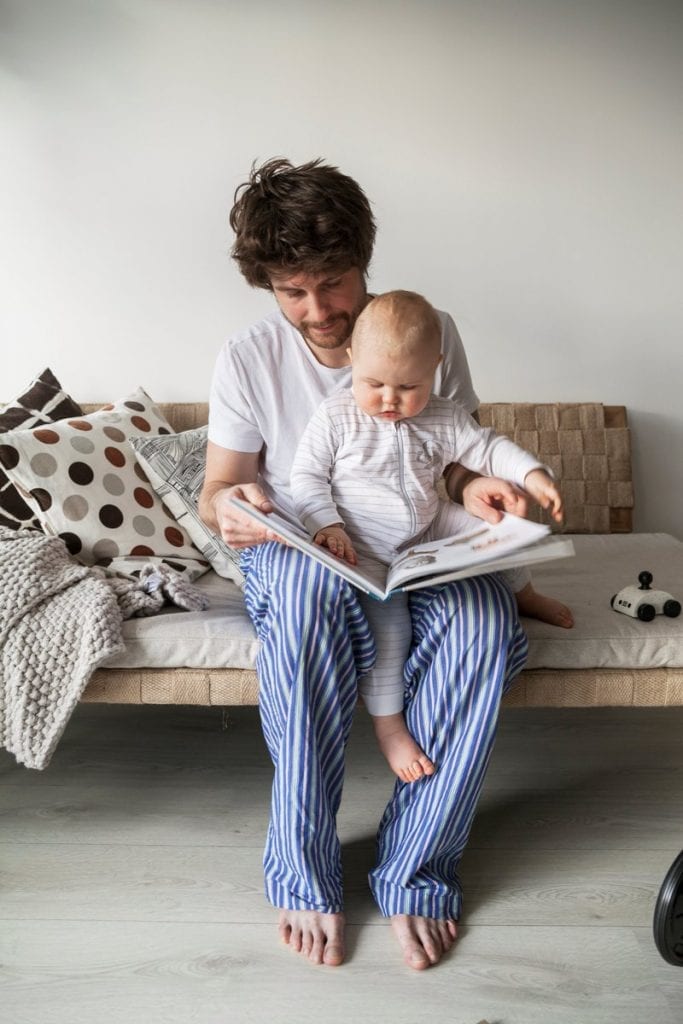
This is another thing that Sweden has got right! Compared to the average 12 weeks of paid maternity leave in most parts of the world, Swedish mothers are allowed up to 480 days of paid leave. Families and family time is important in Sweden, which is why they make it easier for their people to set the foundations for a happy family life!
Personal Information is Readily Available
These days, especially in Europe, your personal information is not readily available to the public. What’s more, is that data such as your email address must be handled with care if collected by a third party, and they have to be very careful with how they use your personal information.

Yet, despite Swedish nationals being notoriously private about who they speak with and what they share, their phone numbers and email addresses can be easily accessed by anybody in the country. It’s relatively easy to find anybody’s contact information online. Talking of phone numbers, by the way, did you know that Sweden was the first country to have telephone numbers?!
A Meeting to Plan Another Meeting
It’s good to plan. If you read or listen to anything about productivity and planning, then you will know that failing to plan is planning to fail. We all know the benefits of planning, but we’ve never known any nation to be quite so dedicated to planning as the Swedes.

If you ever thought that you were well organized and were a bit obsessed with planning, then you might want to think again. The Swedes can probably overtake you here. Not only do they love to plan out everything they do, but they will also even hold a special planning meeting to plan for another meeting.
The Swedish Tradition of Fika
Fika means coffee break, and although you may be unfamiliar with this Swedish term, you’ll definitely be able to resonate with the joys of taking a coffee break, as it called in English. Coffee breaks are an important part of daily and working life in Sweden.
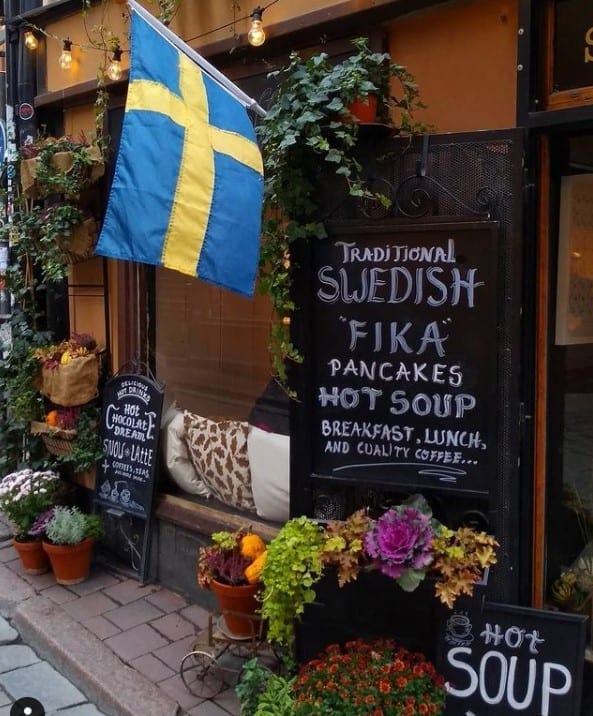
Fika gives people the chance to stop working and catch up with their colleagues for a friendly, informal chat. The idea is that employees step away from their desks and enjoy endless cups of black coffee. You should also know that even if you are extremely busy, it is rude to decline one of these coffee break invitations – not that you would!
Get Paid for Taking Care of Your Child
Gone are the days when women would stay at home to care for their children while the men went to work. These days, it’s more common for both parents to go out to work. This generally sets a good example for your children, and problems only really occur when your child gets sick, and you have to take time out to care for them.

Few companies in other countries pay their employees for staying home and looking after their sick children but Swedish parents don’t suffer this problem. They know that if they have to take time out of work when their kids feel unwell, they will still receive 80% of their salary.
They’re a Very Direct Nation
We’ve established that the Swedes don’t like talking to strangers, raised voices, small talk, or being asked personal questions. On top of all that, Swedish nationals are also known for being direct. You’ve probably already guessed this from the fact that they like to get to the point when in a conversation.

They’re straightforward and what you see is what you get from them. If they invite you for dinner and you decline, they will take your first answer and won’t be persistent in getting you to come. For instance, one tourist declined an offer to sleep in their Swedish friend’s bed to be polite and subsequently ended up sleeping on the floor!
Friluftsliv
When it comes to kicking back and relaxing, we all have our ways to enjoy this time out. For some, chilling out means eating nice food and watching a movie; others prefer some well earned retail therapy. The Swedes enjoy Friluftsliv.

Friluftsliv (pronounced as “free-loofts-liv”) means “open-air living” and is the way the Swedes like to relax. Outdoors living is very important in Sweden, whether it’s going for a run, a swim in a lake or a mountain hike. Some Swedish companies even incorporate Friluftsliv into their work schedule.
Why “Shall We Watch a Movie Together?” is a Risky Question
You’d be forgiven for not understanding what’s so risky about asking this question. Many of us ask this question all the time to friends, colleagues, relatives, and potential love interests. However, in Sweden, this has question has a hidden meaning.

Although this is a genuinely innocent question in most parts of the world, in Sweden, it suggests that you want to get intimate with the person you’re asking! This is because the phrase: “Ska vi kolla på en film tillsammans?” (“Shall we watch a movie together?”) is well known for being an alternative way to ask someone if they want to go to bed with you. Best be careful with that one then!
The Longest Holidays in Europe
Considering the fact that Sweden is so well on its feet and is home to patents, it’s hard to imagine that they actually have the longest holidays in Europe. They really are a nation that epitomizes the “work smart not harder” philosophy.
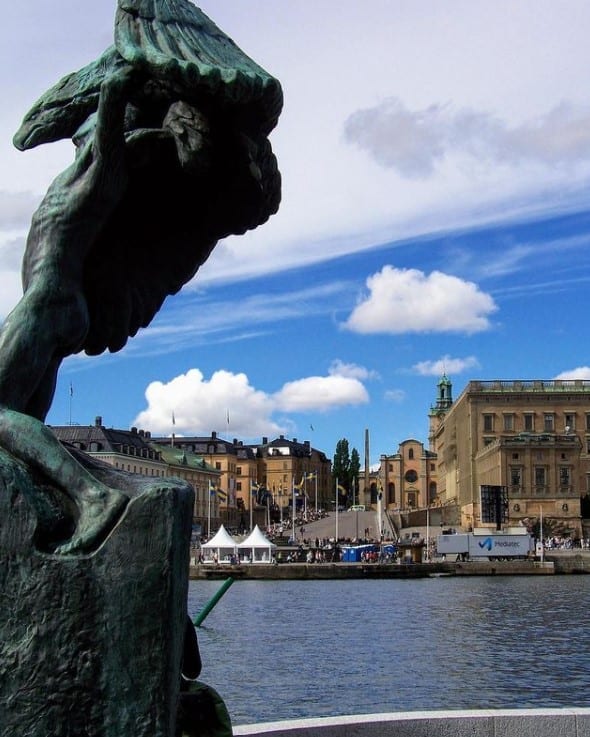
If you’re in full-time employment, you will be entitled to a certain amount of annual leave per year, but it’s nothing in comparison with Sweden. The Swedes are allowed up to 33 days holiday per year. The average number of vacation days in the EU is just 22.5 days per year.
Children Get to Be Children
Growing up in today’s world is a blessing and a curse for any child. On the one hand, kids have access to a wealth of knowledge and resources online, yet on the other hand, it seems like children are growing up way too fast!
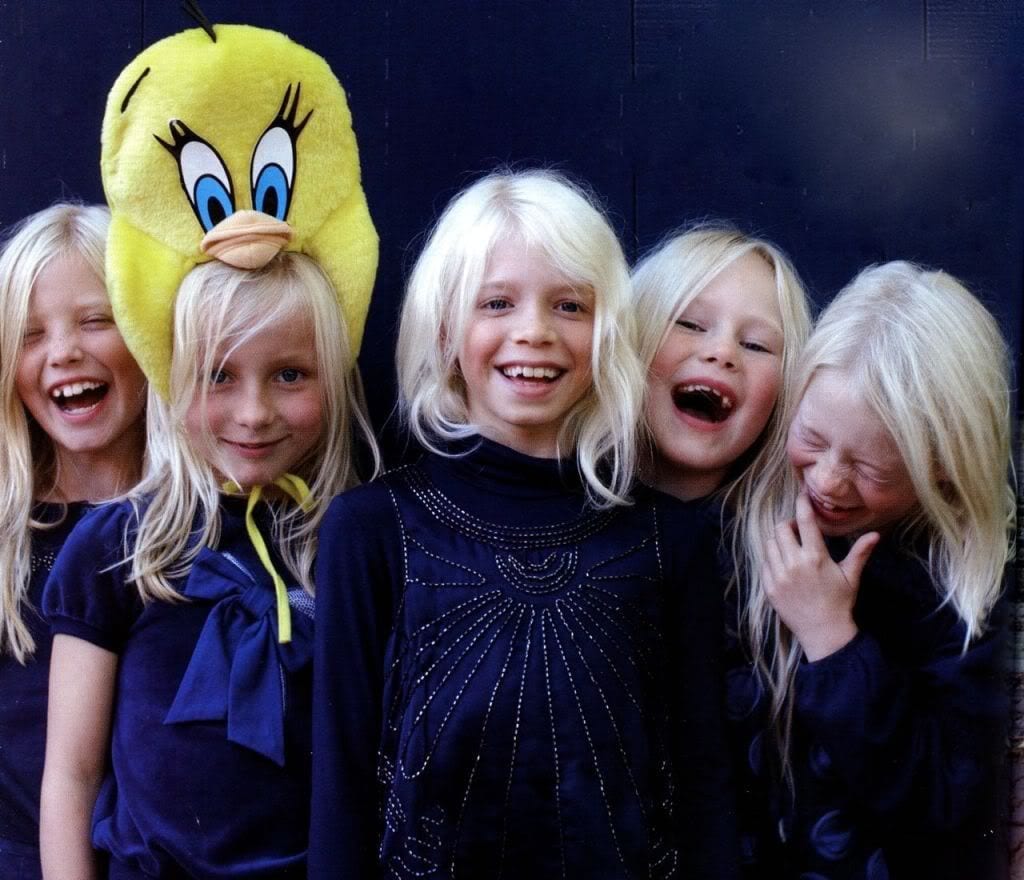
Children in Sweden are encouraged to enjoy their childhood. There is lots of open space and parks for children to play in. Spending time outdoors is an essential part of Swedish life, which is why children are also encouraged to go outside in all weathers and climb trees or play on swings.
You Can’t Give Your Kids Silly Names
We’ve seen a huge rise in unconventional baby names over the last twenty years. How many times have you walked down the street and heard a parent shouting: “Apple” or “Mercedes” at their children? Well, there’s actually a naming law in Sweden that prevents parents from giving their kids silly names.
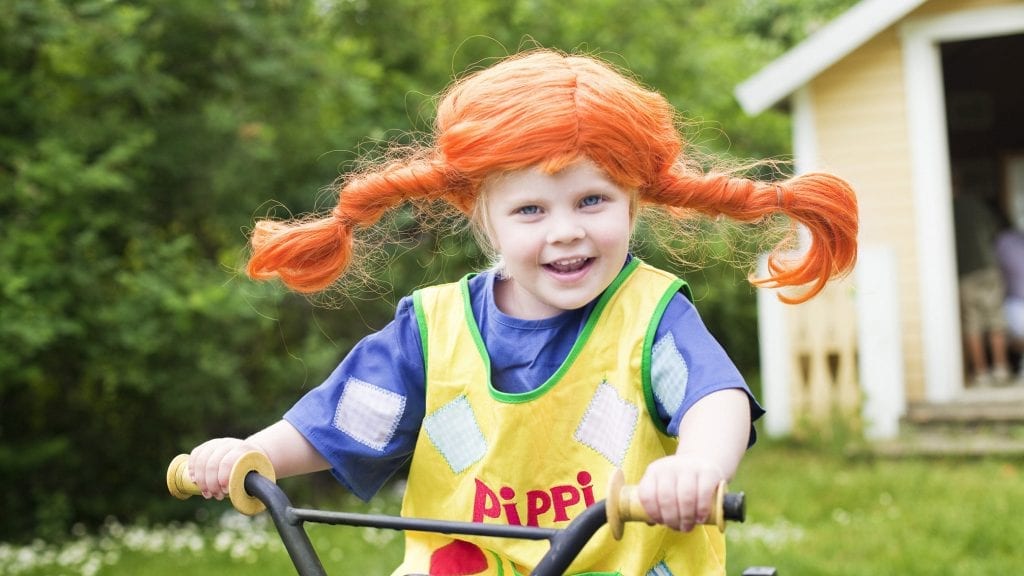
It’s not that Swedish officials are trying to take away your freedom to name your children how you choose, but any name ideas you have will have to be approved first by the Swedish Tax Agency. This helps to rule out names like “Porsche” or “Moschino.”
Allemansrätten
Due to the fact that 86% of the Swedish population live in apartments in busy cities, it is a legal right for every person to have the freedom to roam freely in the countryside. The Swedes love to get away from city life and spend time in nature.

This is an excellent way to encourage people to go outdoors and get some fresh air. Allemansrätten means the right to roam in nature. Swedish nationals can pitch tents and caravans or go for picnics in the countryside without paying a fee. The only exceptions are private property, land under cultivation, or near to dwelling houses.
It’s Not Just Kids that Don’t Speak to Strangers
There are very few places in the world that don’t teach their kids about the dangers of talking to strangers. We all tell our kids not to speak to strangers, but that rule rarely extends to us adults as well. But in Sweden, it’s not just kids that don’t speak to strangers!

This might not come as any surprise, given Sweden’s reputation for their dislike of small talk and no personal questions. It doesn’t matter whether you’re stood next to someone in a coffee shop line or pass somebody who lives in the same apartment block as you when using the stairs; it’s unlikely to ever get into a conversation with them.
Swedes and Alcohol
If you fancy having a drink in Sweden, then it’s easier to go to a bar or restaurant. Drinking at home isn’t widely popular, as alcohol can be difficult to get hold of. If you wish to purchase alcohol for your home, you will need to locate a specialist state off-license.

The strict laws on drinking stem back to the early 20th century, when Sweden was considering following in America’s steps by implementing prohibition. The pro-drinking party won the referendum, and so alcohol remained in the country but is carefully monitored. The dangers of drinking appear on posters and other media all over the country.
Foraging for Food
Generally speaking, summertime in Sweden is when the locals take time out to relax within their home country or to travel abroad. Seeing as the Swedes love the great outdoors, many like to head into the forest during the warmer months to pick mushrooms and berries.
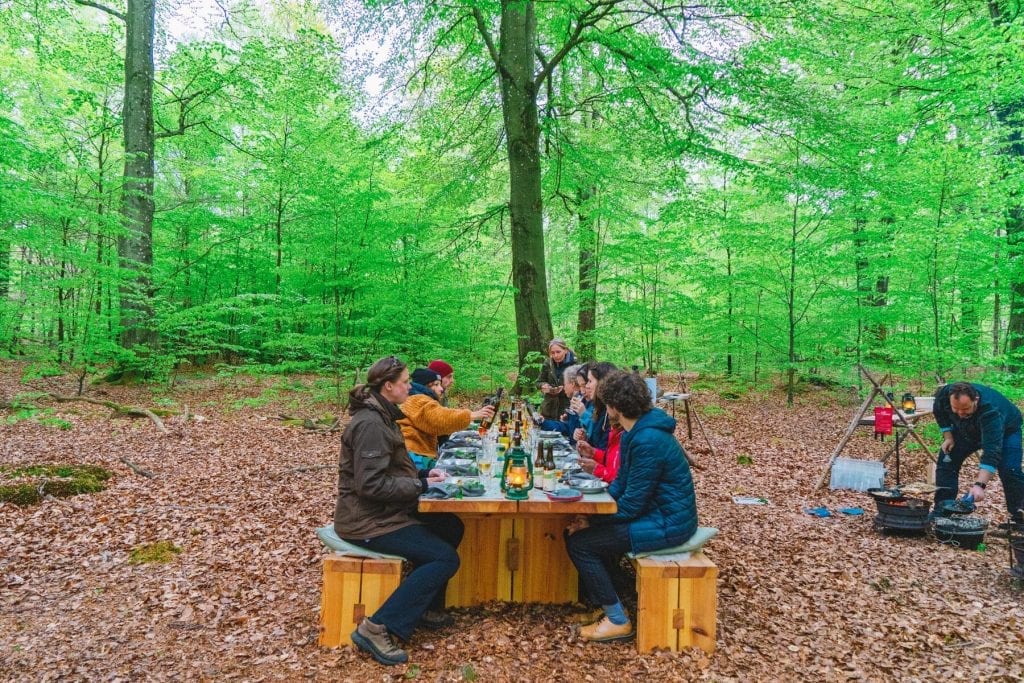
Thanks to the Swedish freedom to roam act, anybody can wander into the woods and pick anything that is growing in the wild. So people can happily go and pick fresh berries and mushrooms whenever they like. Of course, this does not include trespassing on any land that is privately owned.
There’s a Lot of Forest in Sweden
We all know of Sweden’s city life and its famous capital, Stockholm, but did you know that Sweden is actually made up of huge forest areas. In fact, 57% of Sweden is covered in forests and green areas. We always think of Sweden as this modern, tech-focused country but it also has a lot of stunning scenery as well.

Even though Sweden is a modern and well-developed country, it has not been taken over by built-up areas and the temptation to sell off empty land to developers. Sweden still has 23 million hectares of forest land because of the Swedish Forestry Act, which states that any land that is harvested must be regenerated.
Swedes Fear Badgers
The Swedish forests are home to a range of wildlife, including moose and wolves. You would think that large, wild animals like these species would be a bigger cause for concern, especially if you accidentally came face to face with one of them!

But no, the animals that Swedes fear the most among their national wildlife are badgers! Their fear stems from an irrational belief that if a badger bits your arm or leg, they won’t let go until they hear it snap. They take this so seriously that many but rye crackers into their socks when heading into the forest so that if they get bit by a badger, it will confuse the sound of the snapping cracker for your bone!
Screaming Swedish Students
This might sound like a spooky horror movie, but it’s not. Screaming is actually a tradition among Swedish students who are sitting exams. There are so many methods for letting off steam and staying as calm as possible during exam times; however, Sweden has its own unique method!

Uppsala University came up with a way for their students to release tension during the exam period. At 10 pm every night, on a street called Flogsta, students can open up their windows and scream out all of their anxiety! If you’re in the area at this time, then you might be startled by these angry screams, which have been nicknamed ‘The Flogsta Scream.’
Swedish Wedding Speeches
Do you love or loathe wedding speeches? In the USA, wedding speeches are the groom’s responsibility, the bride’s father, and the best man. Other guests rarely give wedding speeches, as it is usually limited to these three people.

But the Swedish love wedding speeches, and absolutely anyone can get up and give a speech at a Swedish wedding. We’re guessing that this has its good and bad sides. Perhaps you’re glad that in your country you only have to suffer three wedding speeches at the most?!
Winters are Cold and Dark
Perhaps one of the first things we learn about Sweden is its dark, harsh winters. Winters in Sweden are cold and dark. If you thought the dark mornings and shorter daylight hours during winter in your country were bad enough, it’s nothing compared to Sweden!

Throughout the winter months in Sweden, you can expect snow, cold temperatures, and limited daylight hours. During the winter, it only stays light for a maximum of 3 hours each day at most! Although this can be challenging, on the plus side, if you’re in Sweden during the winter months you will get to enjoy stunning views of the Northern Lights!
